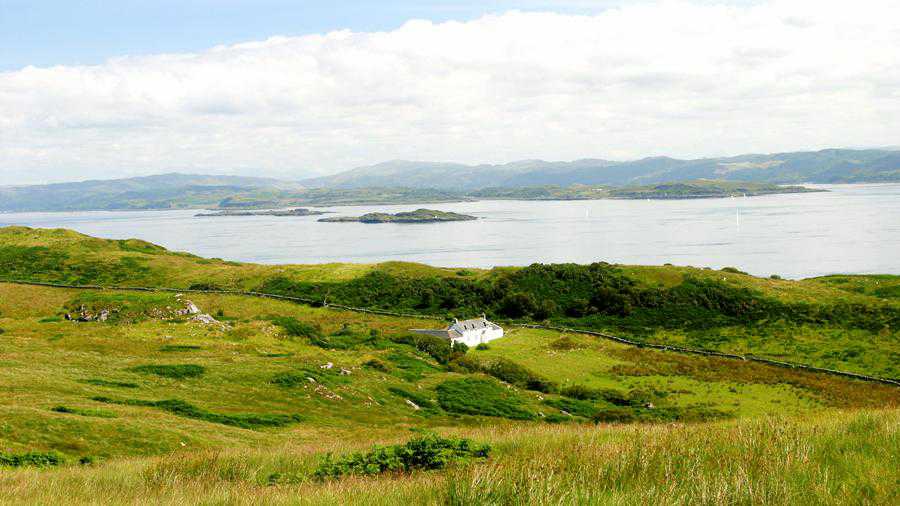Why we could all benefit from getting back to nature
05 August, 2019

As I edge the car to the side of the single-track path, I indicate out of habit rather than for anyone’s benefit, and slowly come to a stop. My water bottle is empty and the nearby river looks like the perfect place to refill it.
I clamber down a grassy embankment, step over a few rocks and plunge my bottle into the cold rushing river. After it’s full, I take a huge gulp, tasting the peat-infused water.
I’m surrounded by boundless stretches of green blades of grass waving eagerly in the summer breeze. I hear the rushing of the stream, the melody occasionally broken by the splash of water when the brook takes a turn a little too quickly, causing a moment of friction.
I’m only a few miles from Barnhill, a remote farmhouse on the isle of Jura in the Scottish Inner Hebrides, and the place where George Orwell wrote the dystopian masterpiece 1984.
This is the end of the road for vehicles. Lying about six kilometres further north, Barnhill can only be reached by foot. My journey there has involved a ferry crossing, a 14km drive to Craighouse – Jura’s only real town – and a further 35km drive along a winding single-track lane.
Up ahead is the white cottage-like building of Barnhill. On the northernmost tip of an island that’s home to fewer than 200 people, it comes with sweeping ocean views. Orwell’s most prominent company when he lived here would have been the thousands of deer that call this island home.
I’m struck by the beauty of the place. Trees laden with blossoms surround the cottage and purple wild thistles speckle the terrain. Stags, hinds and even a few fawns graze across breeze-swept land.
Standing here, surrounded by nature, it’s easy to appreciate the impact it can have on life, or, in Orwell’s case, on a story. In 1984, protagonist Winston and his friend Julia feel the most free in nature. It’s where they escape to for a sense of freedom. It also plays a key role in Winston’s final moment of rebellion in the book.
That’s something that’s easy to forget when you live in a city. But it’s something we should try to remember, especially as spending time in nature has proven benefits. A study by the University of Exeter Medical School found that spending two hours a week in nature, even if that time is split into short bursts, can boost well-being.
'Shout but don't insult': the joy of watching a football match in a gritty cafe in Morocco
Starting your day by drinking coffee in your garden or on the balcony is a simple way to increase your exposure to the great outdoors. And while summer weather in the UAE doesn’t lend itself to nature-filled walks, getting up as the sun rises to walk along the beach or in a park is a worthy addition to your schedule, even if it’s only once a week. If, like me, you’re counting down the days until you can escape city life for another flurry in the country, grow some indoor plants, add a window box or install a bird feeder outside. It’s not quite the same as being out in the open, but every little helps.
On Jura, as I gaze at cotton-ball clouds drifting overhead, a high-pitched noise interrupts my thoughts. Fumbling in a pocket of my windbreaker, I silence the culprit, my vibrating phone that even here, on the most remote point of the most secluded Scottish island, has followed me.
